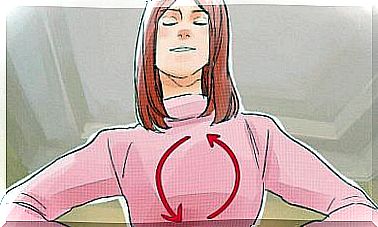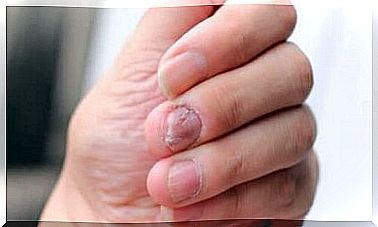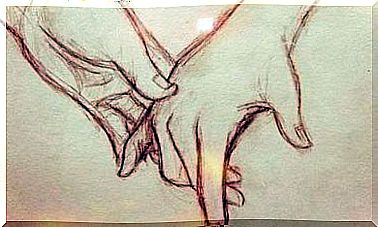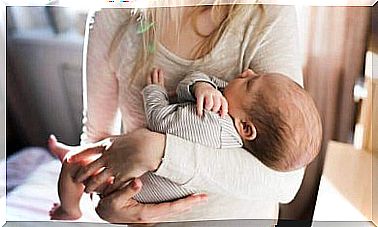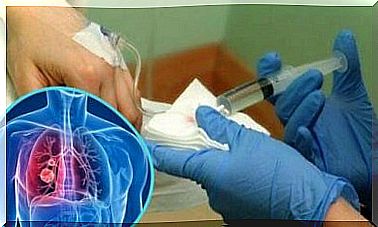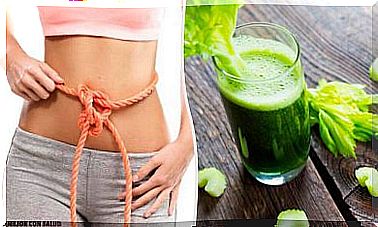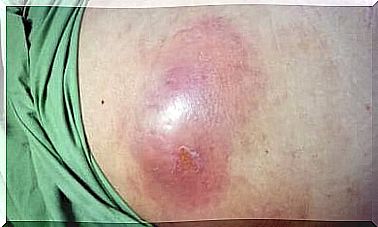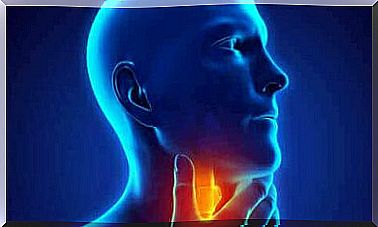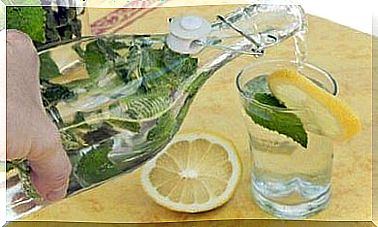Five Major Signs Of Fluid Retention
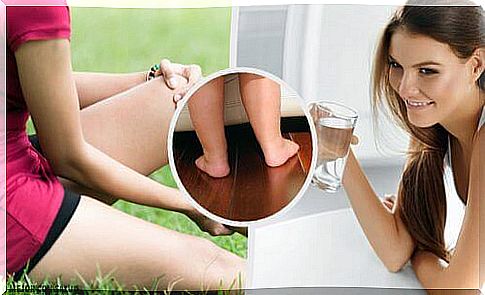
Think your body may be retaining fluid but don’t know the signs of fluid retention ? Fluid retention, also called edema, is a pathological or non-pathological condition caused by an excessive build-up of fluid in your tissues.
- When it’s pathological, it usually arises from circulatory problems, congestive heart failure, or problems with your kidneys or liver.
- When it doesn’t, it’s attributed to a simple widening of your veins when the temperature is higher.
The consequences of fluid retention are:
- Unexplained weight gain
- Swelling in your legs and ankles
- An increase in the size of your abdomen or a decrease in your need to urinate.
Edema is mainly seen in older adults. However, it also occurs in adolescents. The condition is more common in women than in men, mainly due to hormonal problems or nutritional reasons.
It also tends to appear during menopause, pregnancy, or when a person has a sedentary lifestyle.
However, fluid retention can be a sign that a person has another condition. For example, it could be problems with the heart, kidneys, liver or digestion.
Signs of Fluid Retention
1. Lower limbs are swollen

Your lower extremities are the first part of your body to experience fluid retention. So it is important to pay attention to your legs and feet.
At first you will feel fatigue and a heavy feeling in your legs. These are the consequences of insufficient drainage.
2. Thicker Ankles
Edema makes your ankles look thicker than normal. From the moment you wake up until you go to bed, these body parts get bigger and bigger as the day goes on.
3. Leg Cramps

If you look at your legs again, you will also see swelling, although some people don’t notice it there.
One symptom that may indicate that you are retaining fluid is having regular cramps in this area. There is also often talk of muscle weakness.
4. Bloating Your Belly
Another area affected by the signs of fluid retention is your abdomen. Some people think they have gained weight, but in fact they have a distended abdomen.
Some embark on a long, strict diet. They do so thinking that the increase in waist size is fat. But it is really a breakdown of your excretory system.
5. Swelling in your face
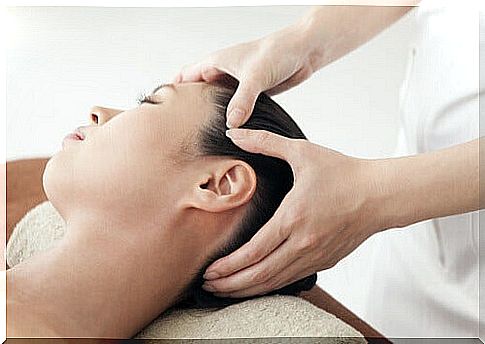
The swelling caused by edema can also appear on your face. The signs of fluid retention are usually visible on your eyes and eyelids, which expand slightly. The excess moisture makes your face look rounder.
Some Solutions for Signs of Fluid Retention
If you think you may be retaining fluids, here’s what you can do:
drink more water

It may seem contradictory, but if your body is retaining fluids, it may be due to dehydration. So give your body the water it needs. In this way it does not store unnecessary moisture.
Follow a hypocaloric, low sodium diet
When faced with signs of fluid retention, it is a good idea to reduce your consumption of refined flour and sugar, fat and salt.
- Movement: It seems that this is the cure for all kinds of problems. With exercise, you can get rid of the extra fluids through sweat and urine. In addition, you also get your circulation going again. Your exercise routine should be at least 20 minutes a day.
- Drink diuretic tea: Certain plants such as dandelion, fennel, parsley and green tea help you go to the bathroom more often. You can also add vegetables such as carrots and cucumbers to your diet. So are fruits like watermelon and cantaloupe.
- Eat plenty of potassium-rich foods : Corn, cauliflower, bananas, and asparagus can also help you if you’re retaining fluids because of their high potassium content.
- Stop drinking dehydrating drinks : This is especially true for alcohol. The worst are beer and vodka, but coffee is also not suitable. As we explained above, the body retains water when it thinks it doesn’t have enough water.
- Eat more protein : Chicken, red meat, fish, shellfish, and legumes are all good options. A lack of protein promotes fluid retention.
- Don’t wear tight clothes : it’s unnecessarily uncomfortable and will make your body swell a little more throughout the day.
- Don’t sit too much: If you’re sitting at your desk all day, get out of your chair for at least five minutes every hour. This way your body will not go into an inactive state.
- Avoid too much heat: Stay away from environments that are too hot, as heat causes dehydration. When that happens, your body retains fluids.
